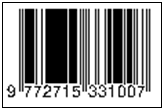Tatalaksana Terkini Kejang pada Neonatus
DOI:
https://doi.org/10.35790/msj.v5i2.45371Abstract
Abstract: Seizures in neonates are caused by a large group of neurons experiencing excessive synchronous depolarization. The therapeutic management of neonates and their prognosis differ, depending on the etiology of the disorder causing the seizures. Management of seizures in neonates use anticonvulsant drugs (phenobarbital, phenytoin, levetiracetam, lidocaine, midazolam, diazepam) so far. This study aimed to determine the current therapy for seizures in neonates. This was a literature review study using the PubMed and Google Scholar databases with the PICOS framework as selection criteria. The results obtained 10 articles to be reviewed. Phenobarbital became the first-line treatment due to its proven efficacy level compared to other anticonvulsant drugs. There were trials of giving levetiracetam as the first-line therapy due to its fewer side effects than phenobarbital. Some other literatures stated that side effects after administration of anti-seizure drugs varied, depending on the underlying etiology. In conclusion, phenobarbital is still the first line treatment for neonatal seizures followed by phenytoin as the second line, midazolam as the third line, and diazepam as the fourth line treatment. However, it is possible that levetiracetam can be used as the first-line anti-seizure drug, or as an alternative treatment.
Keywords: neonatal seizures; pharmacologic treatment; current management; anticonvulsant drugs
Abstrak: Kejang pada neonatus disebabkan oleh sekelompok besar neuron mengalami depolarisasi sinkron yang berlebihan. Penatalaksanaan terapeutik neonatus dan prognosisnya berbeda, tergantung dari etiologi gangguan yang menyebabkan kejang. Tatalaksana kejang pada neonatus menggunakan obat antikonvulsan (fenobarbital, fenitoin, levetiracetam, lidokain, midazolam, diazepam). Penelitian ini bertujuan untuk mengetahui terapi terkini untuk kejang pada neonatus. Jenis penelitian ialah suatu literatur review dengan pencarian literatur dari database Pubmed dan Google Scholar menggunakan framework PICOS sebagai kriteria seleksi. Hasil penelitian mendapatkan 10 artikel untuk dikaji. Fenobarbital merupakan pengobatan lini pertama karena tingkat efikasi yang terbukti lebih manjur dari pada pengobatan obat antikonvulsan lainnya. Uji coba pemberian levetiracetam sebagai terapi lini pertama telah dilakukan dengan pertimbangan efek samping yang lebih lurang daripada fenobarbital. Beberapa literatur menyatakan efek samping setelah pemberian obat anti kejang bervariasi, tergantung etiologi yang mendasari. Simpulan penelitian ini fenobarbital masih menjadi pilihan pengobatan lini pertama untuk kejang pada neonates, lini kedua fenitoin, lini ketiga midazolam, dan lini keempat diazepam. Tidak menutup kemungkinan jika levetiracetam dapat digunakan sebagai obat anti kejang lini pertama, ataupun dijadikan sebagai pengobatan alternatif.
Kata kunci: kejang neonatus; pengobatan farmakologi; tatalaksana terkini; obat antikonvulsan
References
Berry K, Pesko MF, Hesdorffer DC, Shellhaas RA, Seirup JK, Grinspan ZM. An evaluation of national birth certificate data for neonatal seizure epidemiology. Epilepsia. 2017;58(3):446-55.
Pisani F, Facini C, Bianchi E, Giussani G, Piccolo B, Beghi E. Incidence of neonatal seizures, perinatal risk factors for epilepsy and mortality after neonatal seizures in the province of Parma, Italy. Epilepsia. 2018;59(9):1764-73.
Kaminiów K, Kozak S, Paprocka J. Neonatal Seizures Revisited. Children. 2021;8(2):155.
Glass HC, Kan J, Bonifacio SL, Ferriero DM. Neonatal seizures: treatment practices among term and preterm infants. Pediatr Neurol. 2012;46(2):111-5.
Handryastuti S. Kejang pada neonatus, permasalahan dalam diagnosis dan tatalaksana. Sari Pediatri. 2016;9(2):112.
Keene JC, Morgan LA, Abend NS, Bates SV, Bauer HSL, Chang T, et al. Treatment of neonatal seizures: comparison of treatment pathways from 11 Neonatal Intensive Care Units. Pediatr Neurol. 2020; 128:67-74.
Xu ZE, Li WB, Qiao MY, Cui HT, Zhao LZ, Chen QX, et al. Comparative efficacy of anti-epileptic drugs for neonatal seizures: A network meta- analysis. Pediatr Neonatol. 2021;62(6):598-605.
Wagner CB, Kreimer AM, Carrillo NP, Autry E, Schadler A, Cook AM, et al. levetiracetam compared to phenobarbital as a first line therapy for neonatal seizures: an unexpected influence of benzodiazepines on seizure response. J Pediatr Pharmacol Ther. 2021;26(2):144-50.
Sharpe C, Reiner GE, Davis SL, Nespeca M, Gold JJ, Rasmussen M, et al. Levetiracetam versus phenobarbital for neonatal seizures: a randomized controlled trial. Pediatrics. 2020;145(6): e20193182.
Hnaini M, Darwich M, Koleilat N, Jaafar F, Hanneyan S, Rahal S, et al. High-dose levetiracetam for neonatal seizures: a retrospective review. Seizure. 2020;82:7-11. Doi: 10.1016/j.seizure. 2020.08.030
Karaoğlu P, Hız S, İşcan B, Polat AI, Ayanoğlu M, Duman N. Intravenous levetiracetam for treatment of seizures in term and preterm neonates. J Pediatr Neurosci. 2020;15(1):15–20. Doi: 10.4103/ JPN.JPN_66_19
Kreimer AM, Littrell RA, Gibson JB, Leung NR. Effectiveness of levetiracetam as a first-line anticonvulsant for neonatal seizures. J Pediatr Pharmacol Ther. 2019;24(4):320-6.
Han JY, Moon CJ, Youn YA, Sung IK, Lee IG. Efficacy of levetiracetam for neonatal seizures in preterm infants. BMC Pediatr. 2018;18(1):131.
Grinspan ZM, Shellhaas RA, Berg AT. Comparative effectiveness of phenobarbital versus levetiracetam for infantile epilepsy. Pediatric Neurology. 2019;100:105.
Jayswal D, Roy UK, Ghosh T, Mandal P. Effectiveness and adverse drug reactions of levetiracetam and midazolam in refractory neonatal seizure: A cross‑sectional comparative study. Journal of Education and Health Promotion. 2021;10:6. Doi: 10.4103/jehp.jehp_937_20.
Downloads
Published
How to Cite
Issue
Section
License
Copyright (c) 2023 Crifer R. J. Rondonuwu, Rocky Wilar, Jeanette I. Ch. Manoppo

This work is licensed under a Creative Commons Attribution-NonCommercial 4.0 International License.
COPYRIGHT
Authors who publish with this journal agree to the following terms:
Authors hold their copyright and grant this journal the privilege of first publication, with the work simultaneously licensed under a Creative Commons Attribution License that permits others to impart the work with an acknowledgment of the work's origin and initial publication by this journal.
Authors can enter into separate or additional contractual arrangements for the non-exclusive distribution of the journal's published version of the work (for example, post it to an institutional repository or publish it in a book), with an acknowledgment of its underlying publication in this journal.
Authors are permitted and encouraged to post their work online (for example, in institutional repositories or on their website) as it can lead to productive exchanges, as well as earlier and greater citation of the published work (See The Effect of Open Access).










